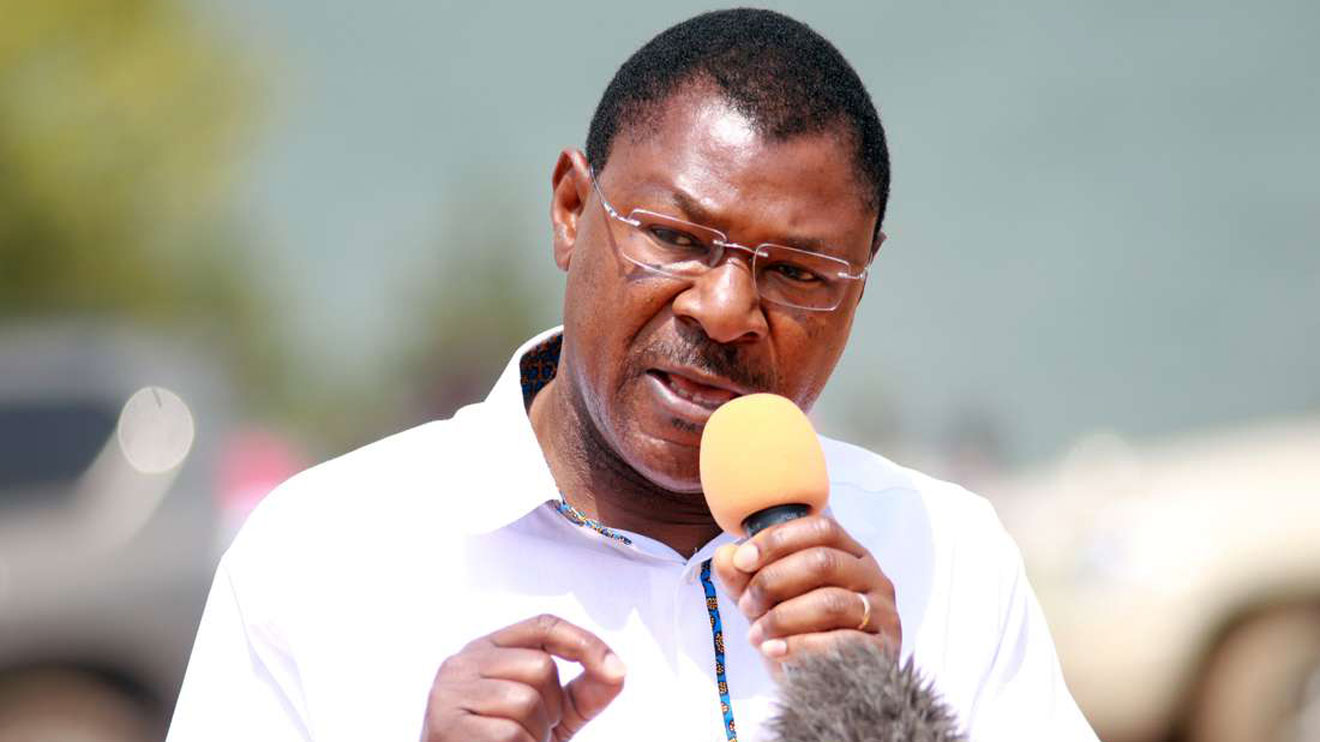Why Atwoli, Wetang’ula and Mudavadi are unlikely to unite the Luhya Nation
Cotu Secretary General Francis Atwoli has joined hands with unlikely political partners to front a fresh push for the elusive Luhya unity.
Mr Atwoli, who in the run up to last year’s General Election, backed the presidential bid of Azimio la Umoja leader Raila Odinga, is seeking to unite the Mulembe Nation with the help of Speaker of the National Assembly Moses Wetang’ula and Prime Cabinet Secretary Musalia Mudavadi.
The three leaders met this week and later stated their commitment to fostering Luhya unity
“In my capacity as Speaker of the National Assembly, I had a tete-a-tete with my brothers @MusaliaMudavadi, the Prime Cabinet Secretary and the COTU Boss @AtwoliDza in my office at Parliament Buildings to deliberate on key strategies for uniting the Mulembe nation post-election season,” Wetang’ula tweeted.

The Speaker also said they agreed to give the government of the day all the necessary support to deliver its agenda as they push for the revival of all stalled projects in Western region.
While their shared ethnic background and their newfound common political goal may seem like the perfect recipe for actualizing Luhya unity, several critical factors still hinder the realization of a cohesive and strong Luhya bloc.
The rift in Mulembe nation grew wider ahead of last year’s polls with Luhya political lynchpins torn between backing the then Deputy President William Ruto or Mr Odinga, who was being fronted by retired President Uhuru Kenyatta.
It is under these circumstances that three political groupings emerged in the region, with each claiming leadership of the vote-rich Luhya community.
Also read: Exclusive: Bill Arocho – Why I chose UDA and not any other party in Azimio
The first group was led by the then Devolution Cabinet Secretary Eugene Wamalwa of the DAP-K Party and the then Kakamega Governor Wycliffe Oparanya, who is also the deputy party leader of Mr Odinga’s ODM. Atwoli would then enter the fray and declare the two as Luhya spokesmen.
The second group was led by Amani National Congress leader Musalia Mudavadi and the then Bungoma Senator Moses Wetang’ula. The two, who had cut ties with Mr Odinga and joined forces with Dr Ruto, promised the community that they would bring home the much-coveted presidency in 2022.
Mudavadi and Wetang’ula also declared that they had the gravitas to win the seat that the Luhya nation has been yearning for quite a long time.
The third group was made up of youthful legislators from the entire Western region, led by the then Kakamega Senator Cleophas Malala and ODM Secretary-General Edwin Sifuna as the captains.
However, the two remained in opposing camps, with Malala running for and failing to clinch the Kakamega gubernatorial seat under the Kenya Kwanza flag as Sifuna emerged victorious in the Nairobi senatorial race.

Eventually, the Mudavadi-Wetang’ula grouping had their way as Dr Ruto – the man they were backing – was elected President. Both we rewarded handsomely with Mudavadi being appointed Prime Cabinet Secretary and Wetang’ula relinquishing the Senatorial seat that he had just retained to take up the more powerful position of Speaker of the National Assembly.
But there have been some sort of realignment. Atwoli has since embraced President Ruto and gradually gravitated towards the Mudavadi-Wetang’ula grouping.
However, even in his much privileged position in the Cabinet, Mudavadi has not been sitting pretty in the face open hostility from some Luhya leaders. Mudavadi has particularly been harshly judged for putting his own political ambitions aside and supporting President Ruto.
Also read: Wajackoyah wins over Khalwale for holding peaceful demos in Kakamega
A plot to oust him was revealed on July 7, 2023 when Eugene Wamalwa, Oparanya, Saboti MP Caleb Hamisi and Vihiga Senator Godfrey Osotsi led the Saba Saba protests in Luanda.
“Mudavadi as Luhya spokesman has failed the Mulembe Nation and we should replace him. We are organizing a big rally where we shall declare the removal of Mudavadi as Luhya spokesman and endorse Oparanya as our new Luhya spokesman,” Wamalwa declared on that occasion.
So will the renewed calls for Luhya unity work this time round?
It’s highly unlikely, considering the prevailing undercurrents.

Here is why Luhya unity may not be attained even by the Atwoli-Mudavadi-Wetang’ula grouping.
Leadership rivalries – The trio of political principals individually represent different Luhya sub-tribes, each aspiring to be the foremost voice of the community. This struggle for leadership is likely to create tension, with each leader’s supporters unwilling to rally behind another. As a result, rather than consolidating their collective strength, they may end up fragmenting the Luhya vote and diminishing their overall political impact.
Historical political divisions – Throughout Kenya’s political history, the Luhya community has been politically divided, with members supporting various political parties. This fragmentation has weakened their collective influence in national politics. Attempts at unity has often faced resistance from entrenched party allegiances, making it challenging to build a united front.
External influence and manipulation – Political players from other regions or parties may try to sow seeds of discord within the Luhya community to advance their own interests. By fueling rivalries, external forces can further impede efforts towards Luhya unity. This interference often creates suspicion and erodes trust among Luhya leaders, making collaboration even more elusive.
Personal ambitions – Each of the mentioned political principals may harbor their own ambitions for higher political office beyond the borders of Western Kenya. This could lead to concerns about the sacrifice of individual aspirations for the collective good, especially when it comes to deciding on a single Luhya presidential candidate in future. Balancing personal ambitions with the greater interest of the community will certainly become a very delicate task.
Also read: Edwin Sifuna – We have taken a break, but maandamano will be back soon



